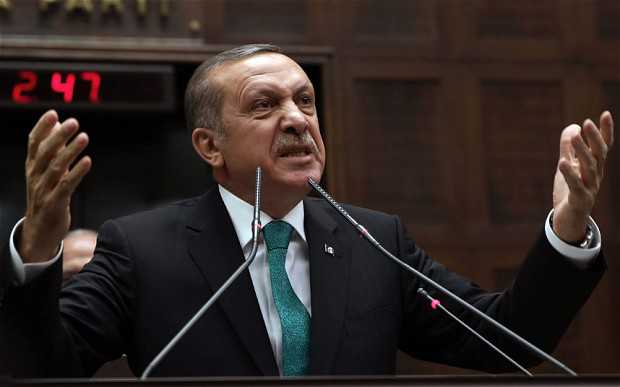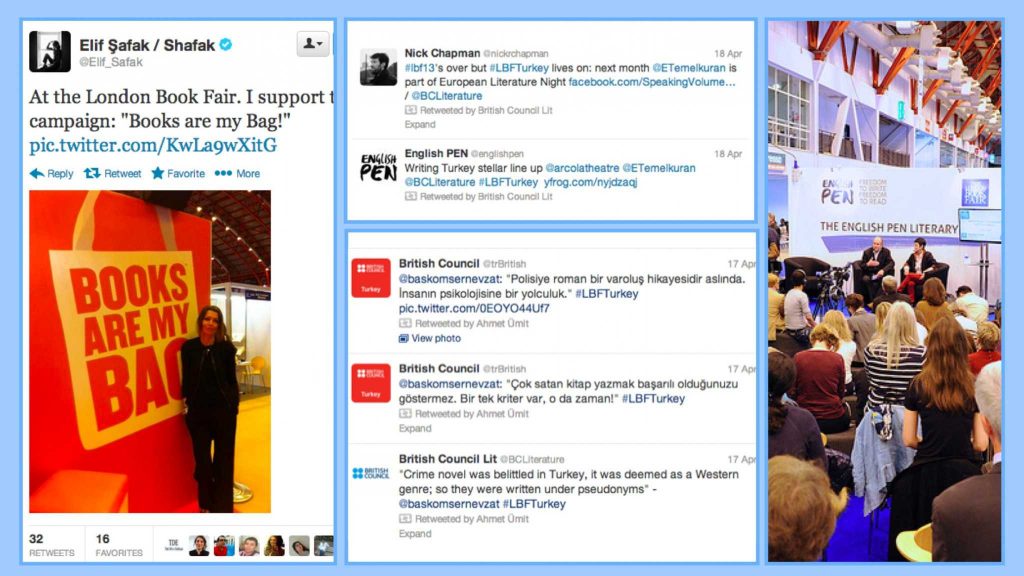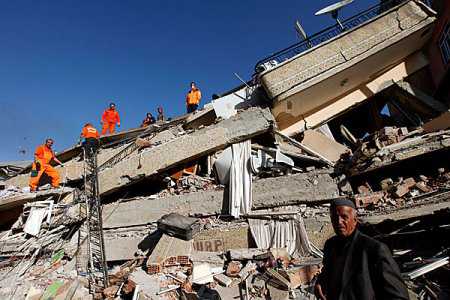As The London Book Fair, one of the biggest annual global publishing events, came to a close last week, Twitter turned out to be the greatest force taking the event to a new level of engagement and intimacy, to an audience that was far above its reach.
“The internet brought freedom from authority of the literary establishment. More importantly it brought new forms of writing.” These words by accomplished writer Murat Gülsoy were uttered in a panel on the Future of Writing in last week’s global publishing event, theLondon Book Fair. They were also instantly shared with the world through a new form of writing, the 140-character tweet. One of the tweets from @BCLiterature, the Twitter account of British Council’s Literature team, included Gülsoy’s words minutes after they were said in the panel. The tweet ended with the writer’s name in a now familiar format,@MuratGulsoy. A new form of writing, indeed.
The London Book Fair is a highly anticipated annual event for publishers, writers, and those who have an interest in the future of books. The fair, attracting around 25 thousand visitors each year, selects a country to become the market focus for that year. This year, it wasTurkey who took centre stage in last week’s London Book Fair, with a collaboration with the British Council for the sixth time. Some of the best names in contemporary Turkish writing and publishing were in the UK, giving UK audiences a rare opportunity to meet and interact with Turkish writers. While 20 writers from Turkey took part in discussions with UK writers, publishers, academics, cultural commentators and readers between 15 – 17 April, the official dates for the fair, the cultural programme for market focus will continue throughout this month.
This year’s London Book Fair was one that made effective use of social media, especially the micro-blogging platform Twitter, that is popular both in Turkey and in the UK. Announcements were made, events were covered live, pictures were shared minutes after they were taken. Writers, publishers and aficionados of literature sent excited tweets throughout the course of The London Book Fair. It was an event that brought global a brand new meaning with the help of Twitter enthusiasts.
Reaching millions through tweets and retweets
Hashtags like #LBF13 and #LBFTurkey were used to draw Twitter followers interested in this global publishing event. “Müge Iplikci talks about feeling in the moment as a writer, in the present, but also a belatedness, writing out of Istanbul #LBFturkey,” wrote one tweet, while the Turkish writer continued her speech in the One Night in Istanbul panel.
It was a thorough coverage of The London Book Fair on Twitter, one that could hardly have been done with traditional media. Social media savvy bookworms followed the event basically through four Twitter accounts, as they tweeted, retweeted and reached millions as they themselves were retweeted. @LondonBookFair was the official account of the fair, sending around 100 tweets each day to more than 21 thousand followers. Three accounts affiliated with the British Council shared tweets to different sets of audience.@BritishCouncil, @BCLiterature and @trBritish made sure that all the details of the events throughout the London Book Fair were shared.
British Council Turkey’s Twitter account @trBritish worked busily as a hub both in Turkish and English, sending original tweets, and making sure that tweets from the other three accounts, as well those from the writers, publishers and commentators , were retweeted to the mostly Turkish followers. @trBritish was the Twitter account that was taken as a solid source for The London Book Fair, with major literary accounts like Vatan Kitap and Kitap Dünyası retweeting its tweets.
Turkish writers as avid tweeters
Turkish writers were also busy sending their own tweets throughout The London Book Fair, some about the events they were participating in, others more leisurely tweets on their UK visit. While the bestselling crime novelist Ahmet Ümit retweeted British Council Turkey’s tweets capturing his speech (“Writing a bestselling novel doesn’t show that you’re a successful writer. There’s only one criteria, and it’s time!”), he also made sure that he sent tweets about his trips to the Natural History Museum, the Royal Albert Hall, as well as his excitement about talking about detective novels in Edinburgh later in the week, “where Sherlock Holmes scribe Arthur Conan Doyle was born.”
Acclaimed Turkish writer Ece Temelkuran was another avid tweeter, making sure that she thanked everyone for “the marvellous Book Fair” through mentioning their Twitter accounts:@LondonBookFair, @BritishCouncil, @trBritish, @englishpen, @Foyles, and@arcolatheatre. The internationally acclaimed Turkish writer Elif Shafak also sent out tweets and retweets to her followers, with the occasional picture added to her tweets. The picture of the London Book Fair in its last day was shared with the words, “As the fair comes to an end. @LondonBookFair Here’s Turkey with filled panels, important subjects, its writers, poets and academics…”
“Last event of #LBF13 before handing over to S Korea: Mario Levi in conversation with Amanda Hopkinson @englishpen Literary Cafe #LBFTurkey” announced one tweet the end of The London Book Fair. Turkish writer Mario Levi’s words later, as tweeted by @BCLiterature, were a welcome contradiction to the new form of communication that is social media. “I still write by hand, with fountain pen and ink – it is important to feel the words.”






